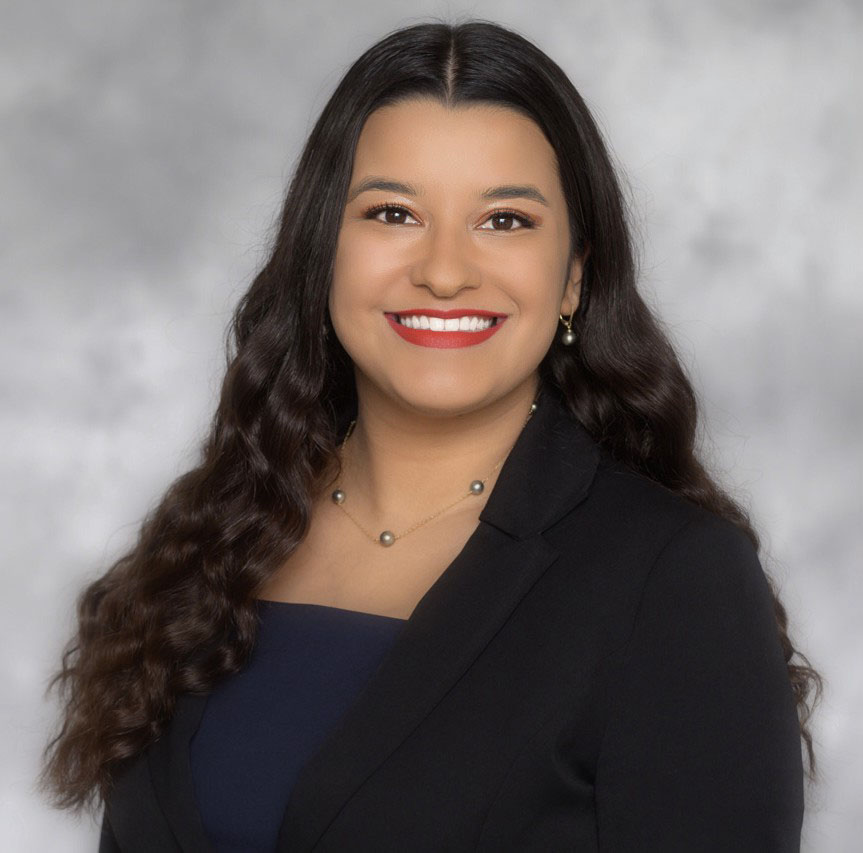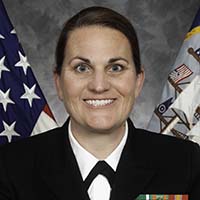Tips from the Bar: Lieutenant Commander Kristen Capps

Two things Lieutenant Commander Kristen Capps always knew about herself are that she always wanted to go to law school as well as follow in her parents’ footsteps by joining the Navy. As an attorney in the U.S. Navy’s Judge Advocate General’s Corps (“JAG Corps”), LCDR Capps has achieved both lifelong goals.
Early Life
Born and raised in San Diego, LCDR Capps grew up in a military family. Both of her parents are retired Naval officers, and one of her grandfathers also retired from the Navy. LCDR Capps received her undergraduate education from George Mason University in Fairfax, VA, where she studied government and international politics. With a love of history and an interest in learning more about how the world and governments operate, LCDR Capps returned to San Diego after receiving her bachelor’s degree to attend law school at Thomas Jefferson School of Law.

During law school, LCDR Capps notes that she was unsure about what type of law she wanted to practice. “I felt driven toward a lot of different practice areas,” she said. “I found myself leaning toward a mix of family law, criminal law, and other types of public service fields.”
Legal Career
Although she practiced primarily family law at a small law firm for a couple of years after graduating from law school and passing the bar in 2013, LCDR Capps was still intent on following her dream of joining the Navy.
“I always knew I wanted to follow in my family’s footsteps, but an internship I had in law school at the Navy JAG Corps’s Navy Legal Service Office Southwest [now Defense Service Office West] secured that knowledge,” she said.
LCDR Capps applied as a civilian and was accepted into the Navy JAG Corps in 2015. LCDR Capps notes that applying to the JAG Corps is a holistic application process and that there are a few different ways to join the JAG Corps, including the Navy’s In-Service Procurement Program for active-duty sailors, the Student Program for law students, and the Direct Appointment Program that she applied to, which enables licensed attorneys to be appointed directly into the Navy JAG Corps. For more in-depth information on joining the JAG Corps, click here.
“I was really excited to join the Navy,” LCDR Capps said. “The JAG Corps has been great for both personal and professional growth. You get to combine legal expertise and service to your country, which then leads to tons of opportunities and just an overall great experience.”
In addition, LCDR Capps notes that she enjoys that in the Navy JAG Corps, you’re not locked into only one field. “In the JAG Corps, we wear two hats: one is our lawyer hat, and the other is our Naval officer hat,” she said. “With each tour that we have, which is two to three years long, we’re assigned a different job.”
As an example, although she is currently stationed in San Diego as a professional development and training officer—where her job focuses on helping junior officers and sailors to become better sailors, officers, and better lawyers—LCDR Capps previously was stationed in Japan for three years where she practiced criminal law in a capacity equivalent to a prosecutor.
LCDR Capps said that as an attorney in the JAG Corps, she’s had “so many experiences [she] never dreamed of happening,” including travelling all over Asia with her family while she was stationed in Japan.
Advice for Young Attorneys and Law Students
For law students interested in a career as an attorney in the JAG Corps, LCDR Capps would like to remind students that your reputation starts early on, even in law school. In addition, she notes the importance of always remaining collegial and professional. “At least in the Navy, you’re constantly rotating, so one day I could be working against a person that on another tour I would need to be working on the same team with,” she said. “That’s why you always need to be able to work well with your colleagues even if it’s a contentious matter.”
LCDR Capps also emphasized the importance of internships in law school and keeping an open mind to different areas of law. “When I entered law school, I didn’t know much besides the core courses. I didn’t realize how many different types of law there are and the different types of things you can do once you’re a lawyer,” she said. “So, don’t shut out opportunities because you don’t know there’s more out there. Always keep learning.”
Finally, LCDR Capps recommends finding mentors, which can be done many different ways including by talking with your professors, networking at local San Diego County Bar Association events, and reaching out to your alumni network.